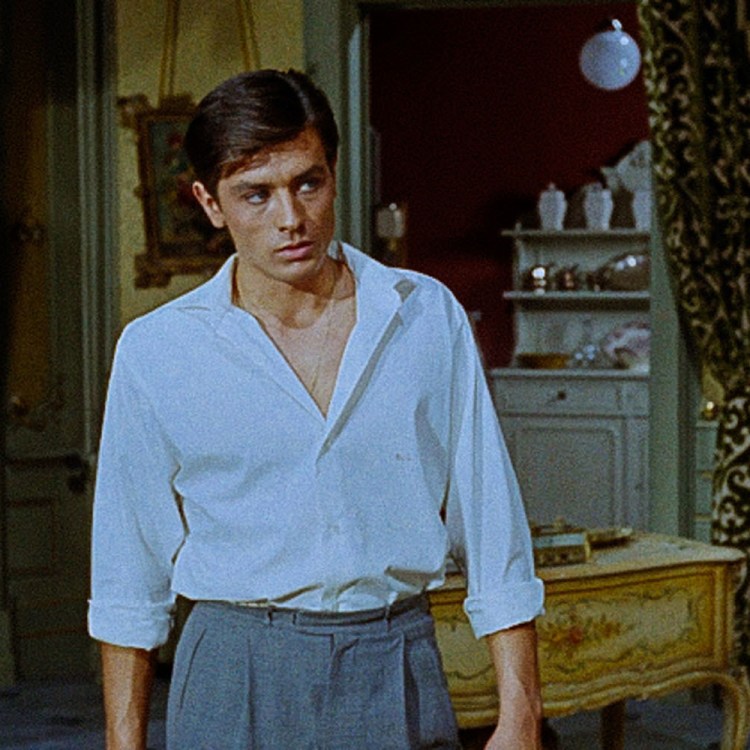If you want to know how much you’re going to like The Last Jedi, you’d probably Google it, right? The most recent installment of the endless Star Wars (and Star Wars-adjacent) franchise, it is very easy to find out stuff about The Last Jedi, as there are theoretically billions of reviews and arguments being written as I type this phrase. Sifting through all those reviews would be less fun, however.
Luckily, your Google search for “The Last Jedi” has given you some hard data on this, courtesy of Rotten Tomatoes, IMDB and Google Users.
Now, these are three different outlets giving you three (well, technically, two) sets of raw data here, including one from Google’s own internal rating system. But the score on the right, from RottenTomatoes.com? If you’ve been at all following the news since The Last Jedi came out, you’d know something was off. While critics, for the most part, were positive in their assessment of Rian Johnson’s The Last Jedi, fans were anything but thrilled. That happens more than you would think. But when it comes to such a huge film, which itself is part of a hugely beloved franchise like Star Wars, the question for fans becomes: “Whose opinion should I trust?”
On Rotten Tomatoes now, you’ll see that the 90 percent Tomatometer score ONLY tallies the reviews of its critics as certified “fresh” (for a movie that passes the muster of 75 percent of the critics of the film) or “rotten.” It’s a binary way of determining a nuanced review of a complicated movie, and lord knows there are many Hollywood people who would love nothing more than for Rotten Tomatoes (and by extension, its parent company, Fandango) to lose some of its power in determining whether a movie will be a hit or a dud before audiences even get a chance to see it.
But hey, at least there’s a scorecard with 90 percent of critics liking The Last Jedi. That’s a win, right?
Well, not as much as you’d think: click through to RottenTomatoes’ page on The Last Jedi and you’ll see a major discrepancy: the audience (or “fan”) score is a mere 50 percent:
Additionally, there are far more people weighing in on a scale of half a star to five stars (instead of it only tallying whether an individual review is fresh or rotten) than there are critics in the world. And in a climate of “fake news” with a national distrust of anything that seems too corporate, too inside-baseball, too MSM, it was perhaps inevitable that the Fan Score concept has become Ground Zero for nostalgia nerds’ annual shitstorm. (That all-female Ghostbusters reboot conversation seems almost quaint in retrospect to The Last Jedi.)
So: what caused the biggest fissure in the rating scores of critics and audiences over at Rotten? Has this happened before? And if so, why are we only hearing about it now?
Richard Alexander is a Star Wars fan, critical of The Last Jedi and has written audience reviews for metadata score sites like Rotten Tomatoes and Flixster. “I feel like 10 years ago, sites were more democratized than Rotten Tomatoes today. Back then, you can tell it was written by fans and for fans. But now you go on a review site and it’s complete corporate capitalism. A movie blog will say something like “This review, sponsored by Fox or Paramount, who made the movie.” It just doesn’t feel as genuine anymore.”
To test out Richard’s theory, all it takes is a glimpse at the RT homepage to see that Jumanji’s score is placed at the top of the page, despite having a lower rating, as a “sponsored” film. An advertorial nightmare, to be sure.
But Richard doesn’t think the great divide between what fans want and what critics say they should want is as big of a problem as it first appears. “Rotten Tomatoes, I don’t think they should change!” He said. “The way they have it is fair enough. You have the critics, the ‘professionals’ if you will. Then you have your audience and your critics; you can pick and choose.”
And certainly, Rotten Tomatoes is calling this business as usual; we just haven’t even if we think we haven’t seen this kind of disconnect before. “Our job is to help fans figure out what they want to watch,” says Dana Bensen, VP of Communications at Fandango. “We serve up information, and the Tomatometer score represents the collective opinions of hundreds if not potentially thousands of critics.”
In terms of the audience/fan score, Dana notes that these are tallied and presented in a totally different fashion than the critics. “We have ways for fans to participate as well,” she said, highlighting the three different types of rating a general user could add his or her two cents to Rotten Tomatoes’ less-highlighted audience score. First, they need to have an account on the site. When a movie has a trailer or a premiere date set, a fan can then click a box saying whether they want to go see the film or not.
Secondly, anyone with an account can “review” the movie by giving it between half a star and five, without any other input or criticism necessitated. Thirdly, a participant may leave their own review on the site, though the difference between reading .a critical review and reading a fan review is enough to make you crazy in trying to parse how these scores and reviews should be weighted.
In fact, they’re not: the audience scores are never tallied into the Tomatometer Score you see on the front page of Google; only the critics. If this kind of great schism has happened before, where fan reception is at odds with the Tomatometer score, we might not have even known to look for it before The Last Jedi. For example, last year the horror juggernaut Blumhouse added a new film to an old franchise: Jigsaw. Critics gave it 34 percent, and fans/audiences gave it…a 92 percent fresh score. Yet no articles were written on that even larger divide, in part, because no one really cares enough about the Saw films to spark an impassioned public dialogue on the movie’s finer moments. (Sorry, Jigsaw. Please don’t put my head in a bear trap or something.)
Then right on the heels of Jedi, another movie entered, adding context to this newly discovered trend: Bright. Bright was Netflix’s attempt at giving Max Landis a break already. (The kid’s had it tough!) Despite (or because of?) its streaming status, Bright managed to rope in A-list Will Smith and Indie-A-list’s Joel Edgerton. This time, critics panned the film, but the audience score is almost 60 percent higher. And unlike the traditional Hollywood argument against RT—like the site can make or break a movie before opening—Bright’s example is part of a different hypothesis: that maybe fans should pay more attention to other fan reviews than traditional criticism.
“Obviously, afterward, we looked at all of these different blockbusters to see if, in so far as participation by fans, was there anything out of the ordinary (with The Last Jedi)?” Dana told me. “We did see an uptick in people taking the time to post written reviews. So there was definitely a lot of passion around this one. But the number of written reviews were very similar to The Force Awakens.”
But if audience scores aren’t even calculated into the final Tomatometer score, what’s in it for the person writing the fan review on the site, the person who is essentially giving free content on a website owned by a corporation that makes its money by planting butts in those seats. And what does that mean for the career of critics who do get paid to write long-form criticism as opposed to this? Alex Marcus is a Behavioral Therapist and amateur podcaster who reads Rotten Tomatoes but finds other platforms to publish his reviews. “Given how frequently the ‘audience rating’ indicates an overall lack of good taste, the non-critical community never seemed like one I would want to join and waste time writing reviews for,” said Alex. “I guess the bottom line is, no one wants to spend their time writing up reviews for a community that seems to have a fundamentally different set of values when it comes to assessing films.”
Being a fan means having a different value structure than a critic. Fandom is more about community than it is about being the loudest voice in the room, and Rotten Tomatoes has smartly concluded that locking fans out of the conversation would lose them the vast majority of their engaged audience. So for now, all we can do is study the data for more irregularities.
Or, you can interpret the news as Dana from Rotten Tomatoes did: “I don’t know if you want to include it, but there are very, very, very VERY passionate Star Wars fans out there.”
This article was featured in the InsideHook newsletter. Sign up now.























